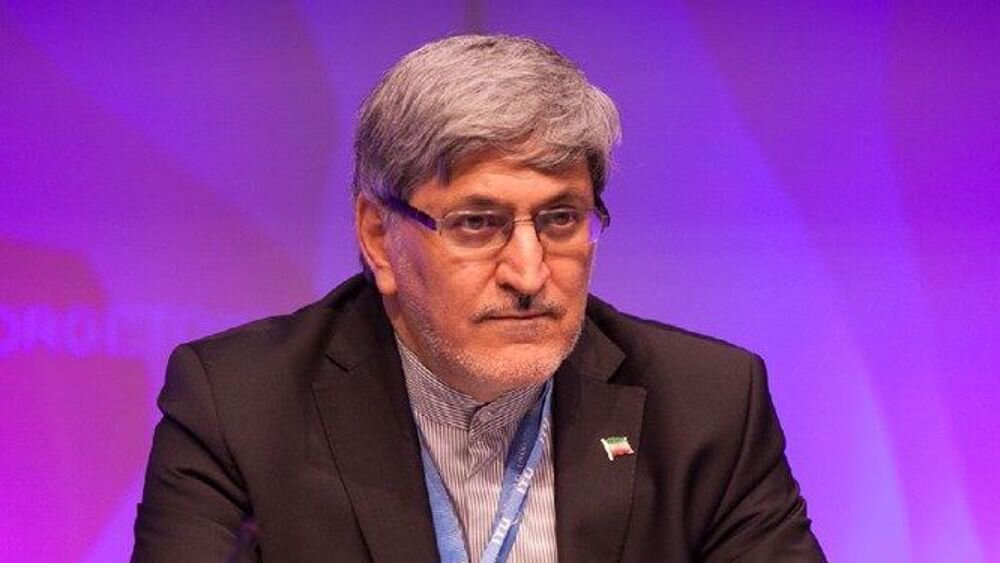Iran delineates anti-narcotics activities at UN meeting

TEHRAN - Mohsen Naziri Asl, Iran’s permanent representative to the United Nations in Vienna, addressed the special session of the UN Commission on Narcotic Drugs which was held on June 26 in Vienna.
While delineating the country’s achievements in dealing with narcotics, he highlighted the fundamental positions of the Islamic Republic of Iran regarding the global problem of drugs, IRIB reported.
Referring to the upward trend of opium production in the world over the past two decades, he pointed to the 28 percent increase in poppy cultivation in the world in 2022, as well as the increase in the production of traditional and industrial drugs in the neighborhood of Iran.
“We believe that the global community should provide the necessary support and help Afghan farmers to have alternative incomes in exchange for not cultivating poppy.”
Elsewhere in his remarks, Naziri Asl touched on the effective role of the Islamic Republic of Iran in dealing with the global problem of drugs.
“In recent years, the country has set a unique record in drug discoveries and the fight against drug traffickers in the world.”
On average, more than 90 percent of opium discoveries, 27 percent of heroin discoveries, and 59 percent of morphine discoveries in the world are made by Iran, he said, adding that some 716 tons of narcotics were discovered and seized in the past Iranian calendar year (March 2022-March 2023).
The flow of narcotics into Iran has decreased by about 15 percent over the past four years, Eskandar Momeni, the secretary general of the Iranian anti-narcotics headquarters, has said.
The impact of dismantling the financial foundations of drug traffickers has increased by about 10 times over the past three to four years, he said, adding “This has led to a decrease of 15 percent in the entry of drugs into Iran.”
“The rising trend of drug production in Afghanistan started about 20 years ago, after the occupation of Afghanistan by NATO and the United States.
Therefore, the smuggling of narcotics has increased almost 50 times, that is, from about 200 tons in 2000 to more than 9,000 tons,” Momeni said, ISNA reported.
In May, Momeni said some 1,700 regional and international drug gangs were dismantled by Iran in the year 2022.
Iran is located next to Afghanistan, the largest producer of opioids, the second largest producer of cannabis, and recently the producer of glass (methamphetamine), he added.
Momeni made the remarks in a meeting with Iraqi Interior Minister Abdul Amir Kamel Al-Shammari on the sidelines of the first Baghdad International Drug Control Conference which was held from May 9-10.
Setting up about 800 coastal checkpoints in the Persian Gulf, strengthening and developing electronic and electro-optical equipment, and installing land-based radars and specialized cameras are among Iran's measures to deal with maritime smuggling, Momeni explained.
Momeni signed a memorandum of understanding with Ghada Fathi Waly, the director general of the United Nations Office on Drugs and Crime (UNODC) on the sidelines of the 66th session of the United Nations Commission on Narcotic Drugs (CND) that was held in Vienna from March 13-17.
The agreement opens a new chapter in Iran's cooperation with the United Nations in the four areas of dealing with the supply and demand of narcotics, and offering treatment and rehabilitation services, Momeni said, IRIB reported.
“Valuable measures to reduce the rate of infectious diseases such as HIV (AIDS) and hepatitis among addicts have been taken. Setting up healthcare, rehabilitation, and consultation centers, and empowering women and girls in cooperation with the UNODC and UNICEF offices in the cities of Tehran, Kerman, and Kermanshah were among the measures.”
In February, Momeni said Iran spends about $700 million to $1 billion annually to fight against narcotics.
According to the reports of international institutions and organizations, about 92 percent of drug discoveries are made by Iran, he said, adding that the country is completely alone and the cost is borne by the government and the people.
Momeni emphasized that the international community should increase support to the Islamic Republic to fight against narcotics, especially to curb trafficking, IRNA reported.
“A significant part of the financial burden in the field of combating narcotics includes blocking the borders, dealing with smuggling, identifying and monitoring the transit routes, and offering treatment and rehabilitation services.”
“However, Iran has not received any notable help from international organizations until today.”
MG
Leave a Comment